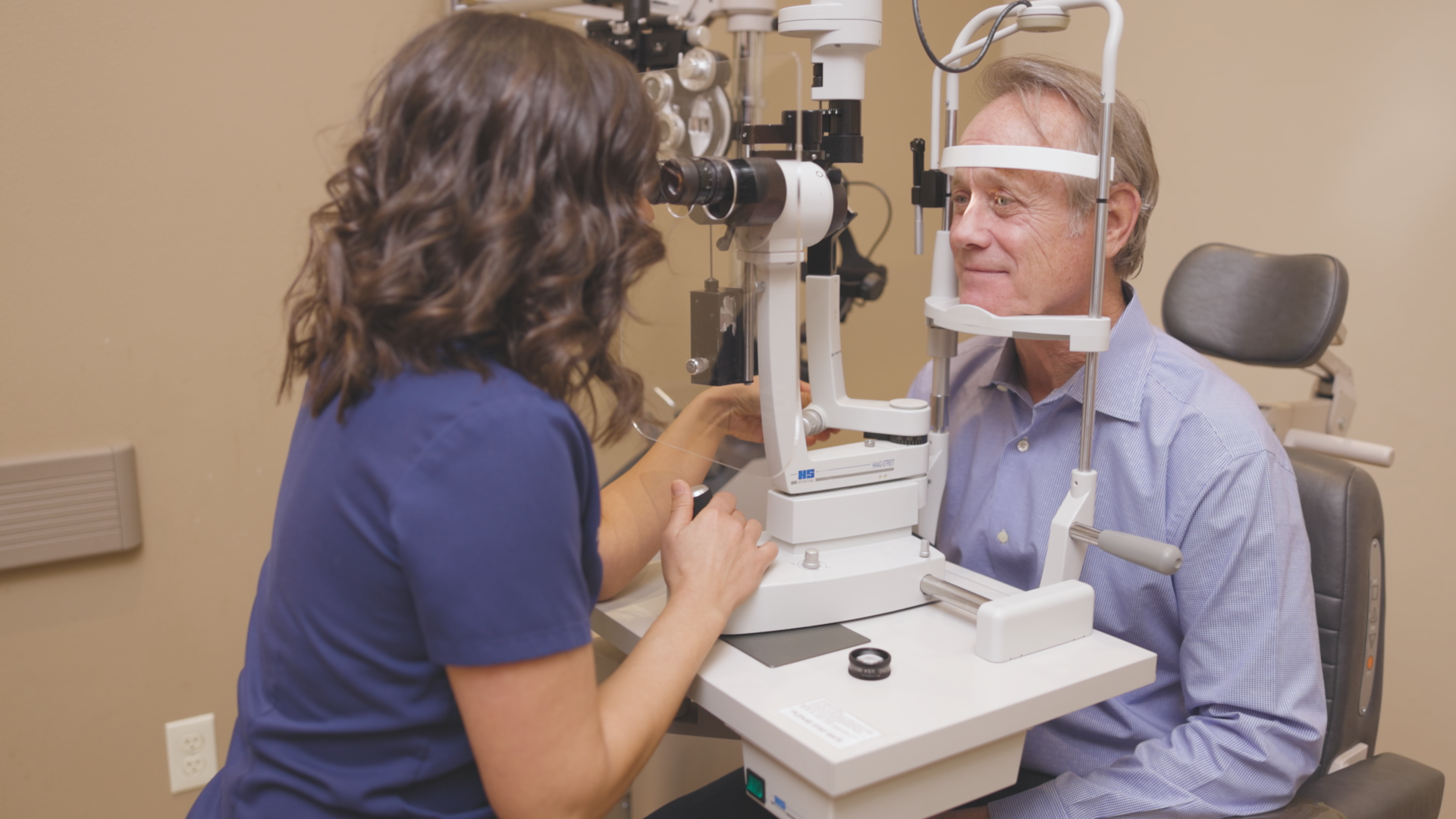Understanding the Comprehensive Function of an Optometrist in Modern Eye Treatment
With improvements in innovation and a boosting emphasis on preventative care, optometrists are important in identifying and managing persistent eye conditions, while also involving in early condition discovery. How do these duties intersect with their duty in promoting overall eye health, and what does this mean for individual outcomes in a joint healthcare setting?
Expanded Range of Method
Recently, the function of eye doctors has actually progressed significantly, with numerous specialists now embracing a broadened scope of method that expands beyond conventional eye exams. This evolution shows the expanding acknowledgment of eye doctors as key healthcare providers in the field of eye care. Their obligations currently incorporate a wide range of services, including suggesting medications for ocular conditions, handling chronic eye illness, and executing minor procedures. This shift has actually been driven by improvements in optometric education and learning, enhanced scientific training, and the boosting demand for thorough eye treatment solutions, specifically in underserved locations.
Better, eye doctors are currently a lot more associated with collective care, functioning carefully with ophthalmologists, medical care medical professionals, and various other health care professionals to ensure all natural patient care. This interprofessional cooperation is critical in handling complex instances that need a multidisciplinary strategy. Furthermore, optometrists are playing a crucial function in public health efforts, such as vision screenings and eye health education and learning, aimed at boosting community health and wellness outcomes.
The expanded extent of practice for eye doctors not only improves their ability to supply extensive care yet also resolves the growing need for effective and available eye treatment services, adding to total health care improvements.
Very Early Illness Discovery
Early detection of eye conditions is increasingly ending up being a focal point in the broadened function of eye doctors. As primary eye care carriers, optometrists are distinctively placed to identify early indicators of ocular conditions such as glaucoma, macular deterioration, diabetic person retinopathy, and cataracts. This critical function is critical, as early diagnosis can substantially boost the management and prognosis of these conditions, potentially protecting against vision loss and improving individual end results.
Optometrists employ extensive eye assessments to identify subtle changes in vision and eye health and wellness. These assessments commonly consist of evaluations of aesthetic skill, intraocular stress, and retinal wellness. The capacity to identify very early signs of systemic health and wellness concerns, such as hypertension and diabetes, through eye indicators better emphasizes the value of routine eye examinations. Early intervention is not only advantageous in preserving vision but also in decreasing healthcare costs connected with innovative condition treatments.
Furthermore, optometrists play an important duty in individual education, stressing the value of regular eye assessments as part of general health care. By fostering an aggressive strategy to eye care, eye doctors contribute dramatically to public health, making certain illness are caught and taken care of effectively prior to they can progress.
Advanced Diagnostic Methods
Advanced analysis strategies have changed the technique of optometry, enabling specialists to find and check eye diseases with unprecedented accuracy. Technologies such as optical coherence tomography (OCT) offer high-resolution, cross-sectional pictures of the retina, assisting in very early discovery of problems like glaucoma and macular deterioration.
An additional critical advancement is digital retinal imaging, which captures comprehensive views of the retina using high-def cameras. This innovation is vital in determining modifications in retinal structure over time, thereby assisting in the monitoring of problems like diabetic retinopathy. Visual field screening, improved by computer-aided systems, enables accurate mapping of a person's visual field, necessary in tracking and identifying glaucoma progression.
Corneal topography, an additional remarkable diagnostic tool, produces detailed maps of the cornea's surface area. This is specifically valuable in suitable contact lenses and intending refractive surgical procedure. These innovative diagnostic techniques jointly allow optometrists to give positive, targeted care, ensuring far better client outcomes and enhancing their critical role in eye wellness administration.
Managing Persistent Eye Conditions
Taking care click to find out more of chronic eye conditions is a keystone check out this site of optometric treatment that requires a thorough understanding of different eye illness and their lasting ramifications. Eye doctors play an essential role in diagnosing, surveillance, and managing problems such as glaucoma, diabetic retinopathy, and age-related macular deterioration. These problems, if left without treatment, can lead to considerable aesthetic impairment or loss of sight, highlighting the crucial relevance of continuous treatment and management.
Optometrists utilize a variety of diagnostic tools, consisting of optical coherence tomography (OCT), visual field screening, and fundus photography, to examine the development of these chronic conditions. By carefully monitoring modifications in eye health, optometrists can change therapy strategies to minimize disease development. This might entail suggesting medications, recommending way of life adjustments, or collaborating with eye doctors for medical interventions when necessary.

Function in Preventive Care
Preventive care is a basic facet of optometry that concentrates on maintaining eye health and wellness and stopping the onset of ocular diseases. Eye doctors play a critical function in very early discovery and prevention, employing normal eye assessments to determine risk variables and subtle changes in eye health. Optometrist Chino. These examinations are not just regarding vision correction yet encompass a thorough evaluation of eye features and frameworks, allowing the recognition of conditions such as glaucoma, cataracts, and macular deterioration at an Homepage onset
Along with diagnostics, optometrists educate patients on way of living options that advertise eye health, such as correct nutrition, UV defense, and the significance of regular eye exams. They advise on the proper use digital tools to stop electronic eye pressure, a growing concern in the electronic age. Optometrists additionally supply advice on protective eyeglasses for work-related and leisure activities, minimizing the danger of injury.
Preventative eye treatment extends to systemic wellness issues that show up in the eyes, such as diabetes mellitus and high blood pressure. By teaming up with various other healthcare experts, optometrists contribute to holistic individual treatment, emphasizing the interconnectedness of ocular and systemic health and wellness. This positive approach is necessary in safeguarding aesthetic acuity and general health.
Verdict
Optometrists currently inhabit a critical duty in modern eye care, defined by an increased range that includes detecting and managing persistent eye conditions, prescribing drugs, and doing small procedures (Eye Doctor). Their know-how in very early illness discovery is boosted by advanced diagnostic strategies such as optical comprehensibility tomography and electronic retinal imaging. By highlighting preventative care and client education, eye doctors add substantially to general eye health and wellness, collaborating with other health care professionals to make certain comprehensive and reliable person outcomes

In addition to diagnostics, optometrists educate patients on lifestyle selections that advertise eye health, such as correct nourishment, UV defense, and the value of normal eye check-ups.Precautionary eye care prolongs to systemic health problems that manifest in the eyes, such as diabetic issues and hypertension.Optometrists currently occupy a critical function in modern-day eye treatment, identified by an expanded range that consists of identifying and handling chronic eye problems, suggesting medicines, and carrying out minor medical treatments.
Comments on “Why Selecting an Eye Doctor Optometrist is Essential for Your Eyes”